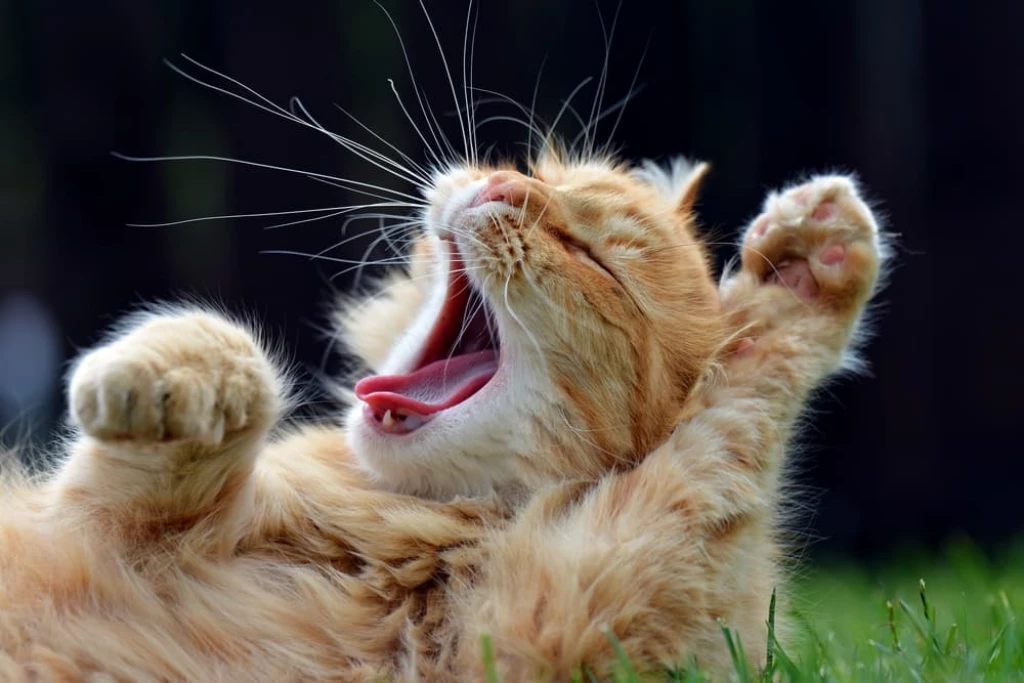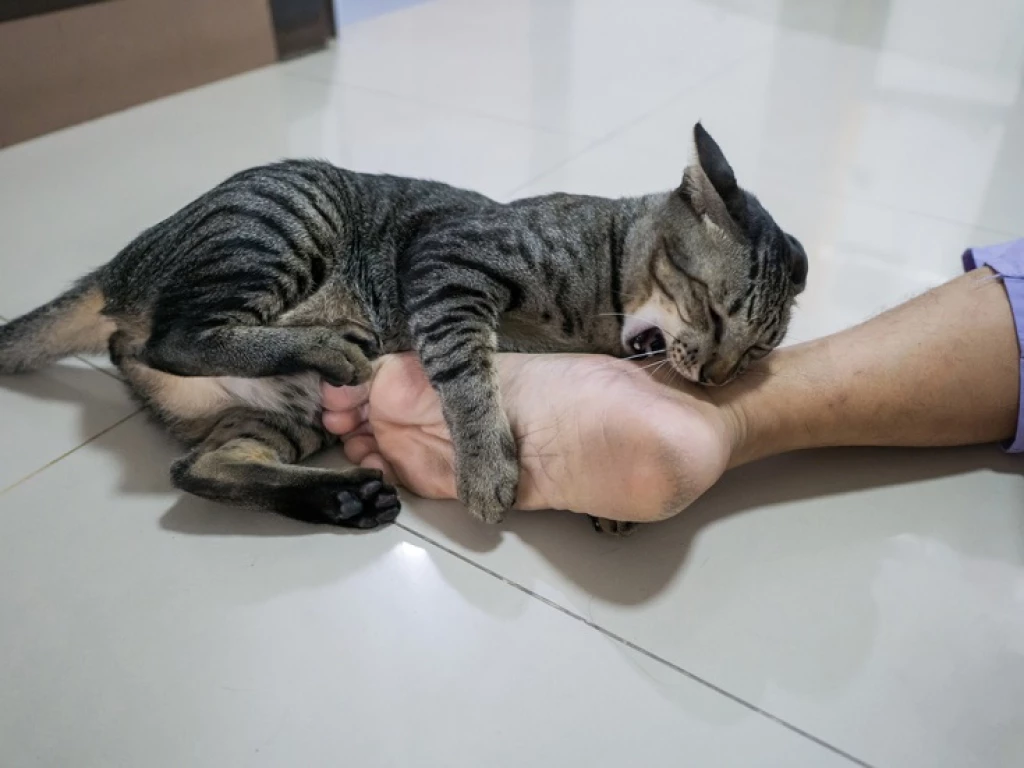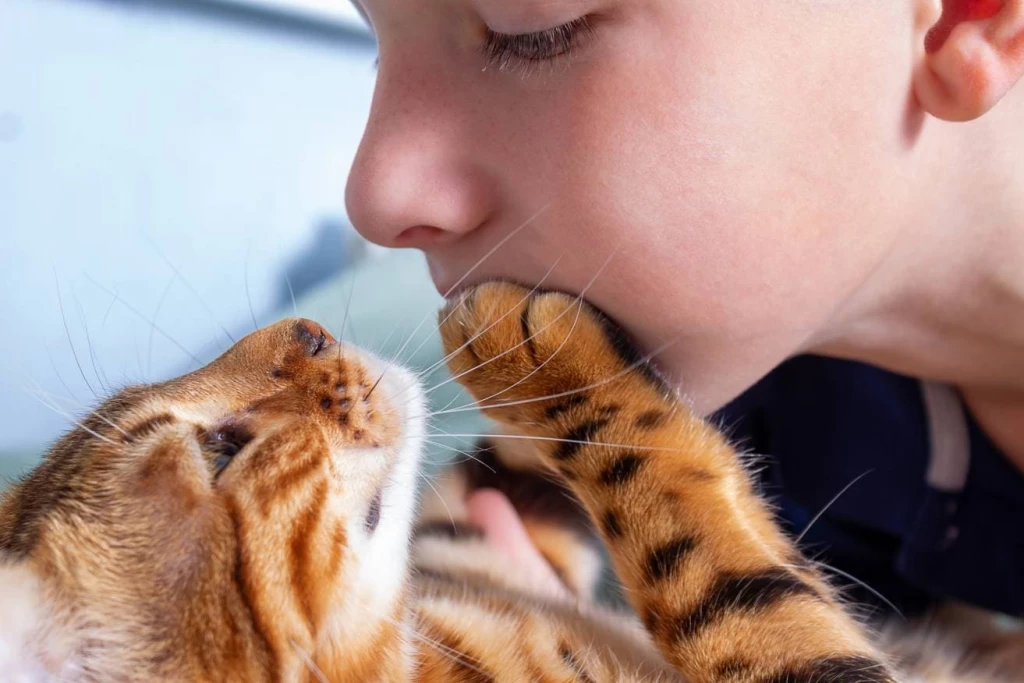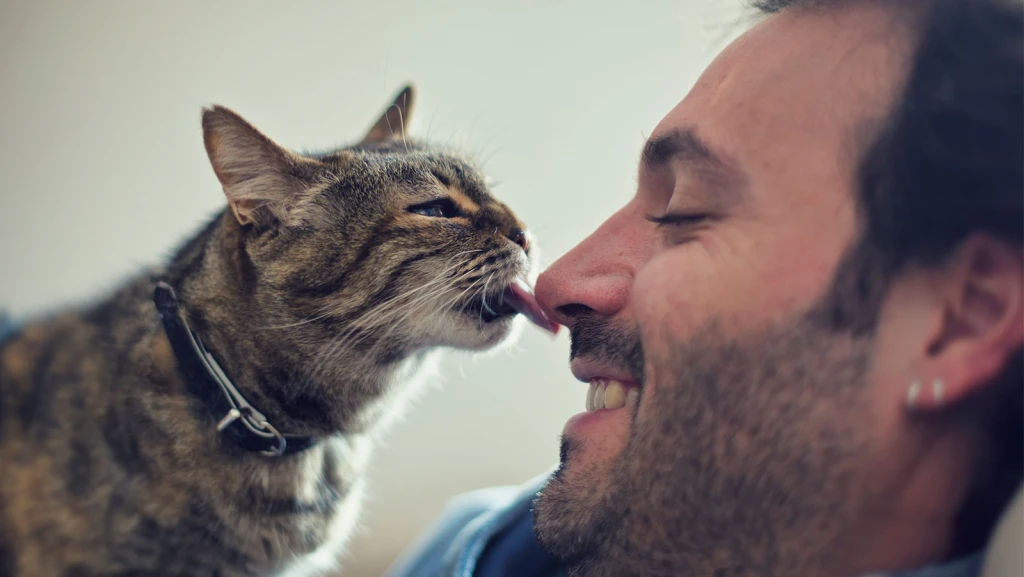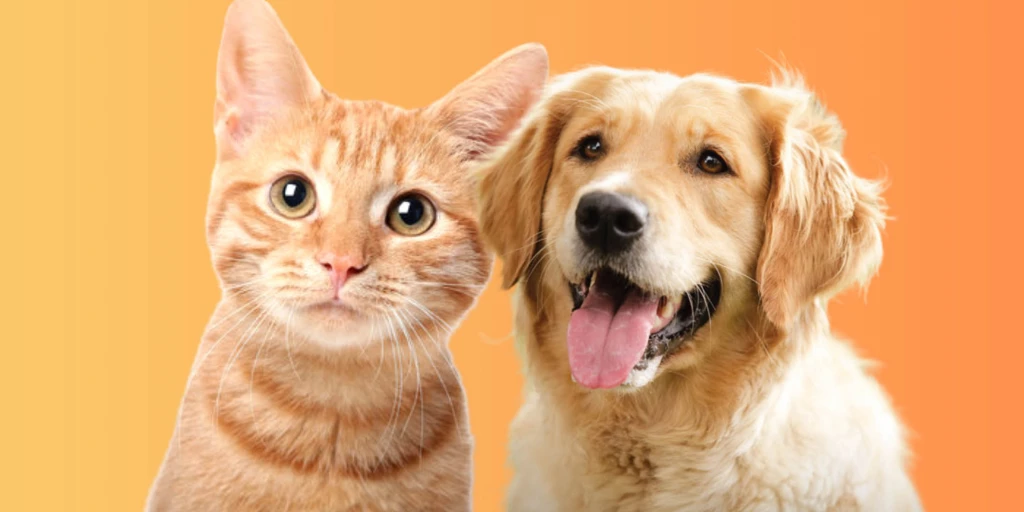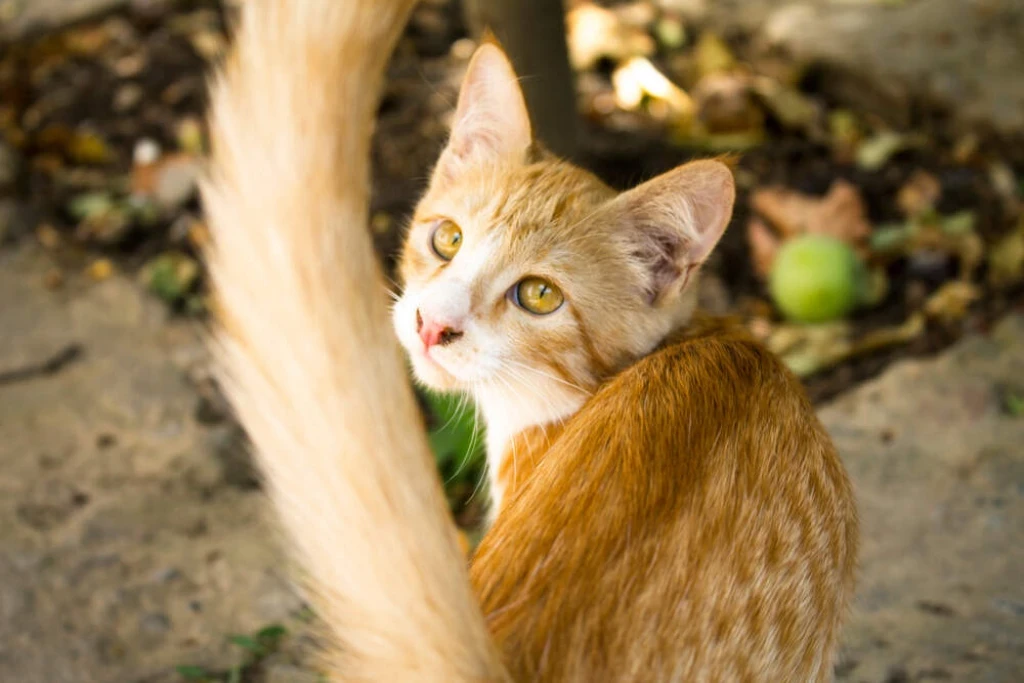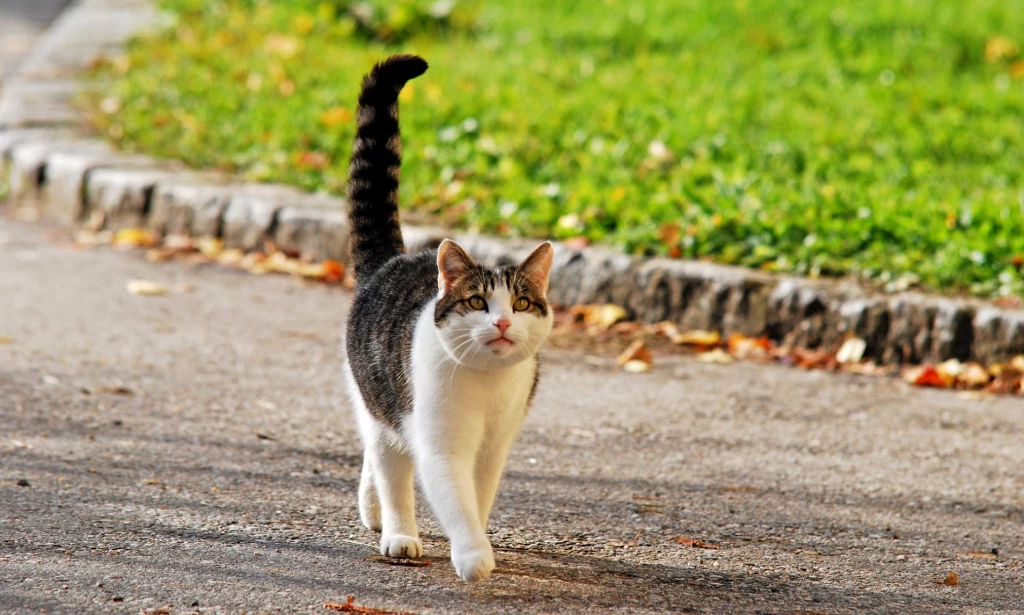Cats are fascinating creatures that often display behaviors that we humans find adorable or puzzling. One of these behaviors is yawning. You may have seen your cat yawn when it wakes up from a nap, when it sees you, or when it seems bored. But what does it mean when cats yawn? Is it a sign of sleepiness, contentment, or something else?
In this blog post, we will explore the reasons why cats yawn, how their yawning differs from ours and other animals, and when yawning may indicate a health problem. We will also answer some of the most frequently asked questions about cat yawning, such as:
- Do cats yawn when they are happy?
- Do cats yawn to communicate with us or other cats?
- Do cats yawn to cool down their brains?
- Do cats yawn more than other animals?
- Do cats catch yawns from us or other cats?
By the end of this post, you will have a better understanding of why your cat yawns and what it is trying to tell you. You will also learn some tips on how to keep your cat healthy and happy by paying attention to its yawning behavior.
What is a Yawn and How Do Cats Yawn?
A yawn is a reflexive action that involves opening the mouth wide, inhaling deeply, and exhaling quickly. Yawning is a universal behavior that is present in humans and most animal species, including cats.
Cats yawn similarly to how we and other animals yawn: they open their mouths wide, take in a deep breath, then follow up with a shorter exhalation. However, it is believed that a cat's yawn does not last as long as a human's, which scientists attribute to brain size and gray matter. The theory is that yawning delivers additional "cooler" blood to the brain as a way to keep the temperature optimally balanced. Animals with larger brains and more neural connections need more "cooler" blood to get rid of the heat.
Why Do Cats Yawn? The Main Reasons Explained
Scientists cannot say with absolute certainty why cats (or humans, for that matter) yawn, but they have some solid theories based on what we know about other species. Here are some of the main reasons why cats yawn:
Sleepiness and Boredom
Yawning is commonly associated with being tired or bored. Just as we do, cats yawn when they feel sleepy or in need of a nap. Yawning increases blood flow to the head (in both humans and birds) to cool the brain and reduce tiredness. It also helps to increase oxygen levels and release excess carbon dioxide. Yawning may also signal the onset of sleep by calming the cat and preparing it for rest.
Cats may also yawn when they are feeling bored or unstimulated. Cats are curious and intelligent animals that need mental and physical enrichment to stay happy and healthy. If they do not have enough toys, games, or interaction with their owners or other cats, they may resort to yawning as a way to cope with boredom or frustration.
Contentment
Yawning can also indicate that your cat is feeling content and comfortable. It is your cat's way of expressing that it feels completely relaxed in your presence or in its environment. Yawning is often accompanied by stretching, which helps to work out any kinks in the cat's muscles and improve blood circulation.
Cats may also yawn when they see you as a way of greeting you or showing affection. It means that they trust you and want to spend time with you. Yawning can also be contagious among cats that are bonded or friendly with each other. It is a way of synchronizing their emotions and behaviors.
Communication
Yawning can also be used by cats as a form of communication with other cats or even with us. Cats may yawn when they are feeling conflicted or uneasy about something, such as an intruder in their territory, an unknown odor, or something that has disrupted their normal routine. Yawning can help them calm themselves down and cope with stress.
Cats may also yawn to signal to other cats that they are not a threat or that they want to avoid conflict. Yawning can be seen as a sign of submission or appeasement in some situations. For example, if two cats are staring at each other in a tense standoff, one of them may yawn to show that it does not want to fight or escalate the situation.
Health Problems
Yawning is a natural and harmless behavior that on its own, does not indicate any major health issues. However, if your cat is yawning excessively or more than usual, it may be a sign of a medical problem that needs attention. Some of the possible health problems that can cause excessive yawning in cats are:
- Oral pain: If your cat has dental disease, oral ulcers, resorptive lesions, or any other condition that affects its mouth, it may yawn more often to stretch out its jaw and relieve the pain. You may also notice other signs of oral discomfort, such as drooling, bad breath, difficulty eating, or pawing at the mouth.
- Respiratory infection: If your cat has a respiratory infection, such as a cold or flu, it may yawn more frequently to clear its airways and get more oxygen. You may also notice other symptoms of respiratory infection, such as sneezing, coughing, nasal discharge, or fever.
- Heart disease: If your cat has heart disease, it may yawn more often because its heart is not pumping enough blood and oxygen to its body. You may also notice other signs of heart disease, such as lethargy, weakness, loss of appetite, or breathing difficulties.
- Liver disease: If your cat has liver disease, it may yawn more often because its liver is not functioning properly and toxins are building up in its blood. You may also notice other signs of liver disease, such as jaundice, weight loss, vomiting, or diarrhea.
If you notice any of these signs in your cat along with excessive yawning, you should take your cat to the vet as soon as possible for diagnosis and treatment.
How to Keep Your Cat Healthy and Happy by Paying Attention to Its Yawning Behavior
Yawning is a normal and natural behavior for cats that can tell you a lot about their mood and health. By paying attention to your cat's yawning behavior and the context in which it occurs, you can better understand your cat and provide it with the best care possible.
Here are some tips on how to keep your cat healthy and happy by paying attention to its yawning behavior:
- Provide your cat with enough sleep and rest. Cats need about 15 hours of sleep per day on average, but some cats may need more or less depending on their age and activity level. Make sure your cat has a comfortable and quiet place to sleep where it feels safe and secure.
- Provide your cat with enough stimulation and enrichment. Cats are curious and intelligent animals that need mental and physical stimulation to stay happy and healthy. Provide your cat with enough toys, games, scratching posts, climbing structures, and interaction with you or other cats. You can also rotate the toys and games to keep your cat interested and challenged.
- Provide your cat with enough affection and attention. Cats are social animals that need love and companionship from their owners or other cats. Spend quality time with your cat every day by playing with it, grooming it, talking to it, or cuddling with it. You can also reward your cat's yawning behavior with praise or treats to reinforce its positive association with you.
- Monitor your cat's yawning behavior for any changes or abnormalities. If you notice that your cat is yawning more than usual or excessively, it may be a sign of a medical problem that needs attention. Take note of any other symptoms or changes in your cat's behavior or appearance that may indicate a health issue. Take your cat to the vet as soon as possible for diagnosis and treatment.
Frequently Asked Questions About Cat Yawning
Here are some of the most frequently asked questions about cat yawning and their answers:
Do Cats Yawn When They Are Happy?
Yes, cats yawn when they are happy. Yawning can indicate that your cat is feeling content and comfortable in your presence or in its environment. Yawning can also be contagious among cats that are bonded or friendly with each other. It is a way of synchronizing their emotions and behaviors.
Do Cats Yawn to Communicate With Us or Other Cats?
Yes, cats yawn to communicate with us or other cats. Cats may yawn when they are feeling conflicted or uneasy about something, such as an intruder in their territory, an unknown odor, or something that has disrupted their normal routine. Yawning can help them calm themselves down and cope with stress.
Cats may also yawn to signal to other cats that they are not a threat or that they want to avoid conflict. Yawning can be seen as a sign of submission or appeasement in some situations. For example, if two cats are staring at each other in a tense standoff, one of them may yawn to show that it is not interested in fighting.
Cats may also yawn to greet us or show affection. It means that they trust us and want to spend time with us. Yawning can also be contagious between us and our cats. It is a way of showing empathy and bonding.
Do Cats Yawn to Cool Down Their Brains?
Possibly. One of the theories about why cats (and humans) yawn is that yawning delivers additional "cooler" blood to the brain as a way to keep the temperature optimally balanced. Animals with larger brains and more neural connections need more "cooler" blood to get rid of the heat.
Yawning may also help to increase alertness and reduce tiredness by cooling down the brain. This may explain why cats (and humans) tend to yawn more in the afternoon or evening, when body temperatures are often higher.
Do Cats Yawn More Than Other Animals?
No. Cats do not yawn more than other animals. Yawning is a universal behavior that is present in humans and most animal species, including cats. However, it is believed that a cat's yawn does not last as long as a human's, which scientists attribute to brain size and gray matter.
Do Cats Catch Yawns From Us or Other Cats?
Yes. Cats can catch yawns from us or other cats. Yawning can be contagious among social species, such as humans, chimpanzees, and cats. It is a way of showing empathy and bonding.
However, not all cats are susceptible to contagious yawning. Some factors that may influence whether a cat catches a yawn from us or another cat are:
- The relationship between the yawner and the observer: Cats are more likely to catch a yawn from someone they are close or familiar with, such as their owner or a friendly cat.
- The personality of the observer: Cats that are more sociable and outgoing may be more prone to contagious yawning than cats that are more shy and reserved.
- The age of the observer: Kittens may be more susceptible to contagious yawning than adult cats.
Conclusion
Yawning is a normal and natural behavior for cats that can tell you a lot about their mood and health. By paying attention to your cat's yawning behavior and the context in which it occurs, you can better understand your cat and provide it with the best care possible.
